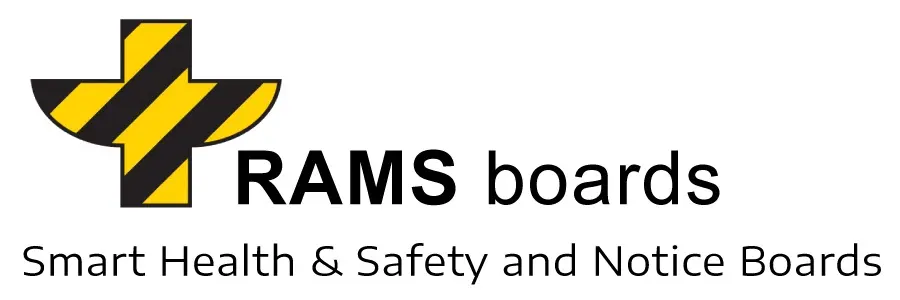RAMS boards in Desert Camps: Facilitating Safety and Efficiency in Oil Extraction and Scientific Research
Desert camps, especially those dedicated to oil extraction and scientific research, operate in some of the most challenging environments on the planet. The harsh desert climate, remote locations, and unique operational hazards pose significant challenges to the safety and efficiency of these operations. In this context, RAMS (Risk Assessment and Method Statement) Boards have become an essential tool, playing a critical role in managing these challenges effectively.
The Unique Challenges of Desert Camp Operations
Desert camps, whether for oil extraction or scientific research, face a range of challenges unique to their desert locations:
| Challenge | Description |
|---|---|
| Extreme Weather Conditions | High temperatures and sandstorms can significantly impact operations and safety. |
| Remote Locations | Camps are often isolated, making access and communication difficult. |
| Environmental Hazards | Risks such as heat stress, dehydration, and encounters with wildlife are common. |
| Operational Complexity | Desert operations, particularly in oil extraction, involve complex procedures and equipment. |
| Communication Barriers | Limited access to regular communication channels can hinder the flow of crucial operational and safety information. |
The Role of RAMS boards in Desert Camps
RAMS boards address these challenges by providing a robust and reliable platform for safety and operational communication:
- Enhanced Safety Communication: They provide clear and visible safety instructions, essential in high-risk desert environments.
- Operational Efficiency: RAMS boards centralize crucial information, reducing the time personnel spend searching for operational updates or safety protocols.
- Adaptability to Desert Conditions: The boards can be updated to reflect the dynamic and harsh conditions typical of desert areas.
- Emergency Preparedness: In remote areas, having accessible emergency contact information and procedures is critical. RAMS boards play a vital role in ensuring this preparedness.
- Worker Training and Compliance: They also serve as a tool for ongoing worker training and reminders about compliance with safety standards.
Case Studies: RAMS boards at Desert Camps
- Oil Extraction Site: In a remote desert oil extraction camp, RAMS boards could be used to display safety protocols for operating heavy machinery, heat stress prevention guidelines, and emergency evacuation routes.
- Desert Research Facility: At a scientific research station in a desert region, the boards will provide crucial information on local wildlife hazards, environmental data collection protocols, and communication procedures in case of sandstorms.
The Benefits of RAMS boards in Desert Camps
| Benefit | Description | Expanded Details |
|---|---|---|
| Safety Enhancement | Ensures continuous visibility of safety procedures and emergency contacts. | Particularly crucial in desert environments where risks are amplified due to extreme temperatures and isolation. |
| Information Centralization | Provides a single point of reference for all operational and safety-related information. | Essential in remote and challenging desert environments for efficient management of operations and ensuring all staff have access to updated information. |
| Adaptability | Can be quickly updated to reflect changes in desert conditions, operational procedures, or environmental regulations. | Allows for real-time communication of vital information, adapting to the dynamic and often harsh desert climate. |
| Durability | Built to withstand extreme desert conditions, ensuring longevity and reliability. | Ensures that RAMS boards remain functional and visible in extreme temperatures and sandstorms, contributing to their reliability as a constant source of information. |
| Compliance and Training | Facilitates ongoing training and reinforces compliance with safety standards and environmental policies. | Aids in maintaining high safety standards and regulatory compliance, essential for the well-being of staff and the preservation of the desert environment. |
| Environmental Awareness | Promotes sustainability practices and awareness of the delicate desert ecosystem. | Encourages environmentally responsible behavior, crucial in ecologically sensitive desert regions. |
Summary
RAMS boards have proven to be an invaluable asset in the challenging environments of desert camps, whether for oil extraction or scientific research. Their ability to provide clear, visible, and up-to-date safety and operational information is vital for the smooth and safe functioning of these operations. In the extreme conditions of the desert, where both natural and operational hazards are prevalent, RAMS boards enhance safety, ensure operational efficiency, and contribute significantly to environmental stewardship.
The integration of RAMS boards into desert camp operations underscores a commitment to maintaining high safety standards, ensuring operational efficiency, and promoting awareness of the unique challenges and risks associated with desert environments. These boards serve not only as a tool for communication and safety enhancement but also as a symbol of an organization`s dedication to the well-being of its personnel and the preservation of the delicate desert ecosystem.
As activities in desert regions continue to expand, the role of RAMS boards in ensuring the safety and sustainability of operations in these remote and challenging locations will remain crucial. By facilitating effective communication, adapting to ever-changing desert conditions, and reinforcing essential safety and environmental protocols, RAMS boards play a key role in supporting the success and safety of operations in desert camps.
